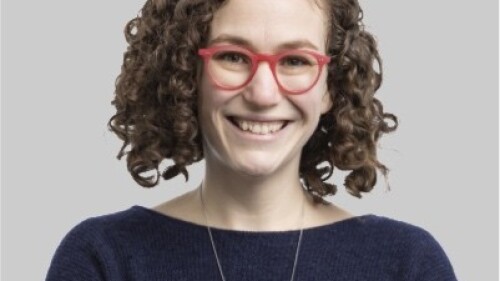Lynn Thurber, chairman of LaSalle Investment Management in Chicago, began her two-year term as ULI chairman July 1. A member of ULI since 2004, she has a strong record of volunteerism with ULI, serving on the boards of directors for ULI and the ULI Foundation, on the Global Strategy Committee, and on the advisory boards for the ULI Greenprint Center for Building Performance and the ULI Center for Capital Markets and Real Estate. She has been a member of ULI’s Climate, Land Use, and Energy (CLUE) advisory group and is a participant in the ULI McCoy Symposium, an annual gathering to discuss capital markets and real estate finance issues. In addition, she has served on the ULI Investment Committee, the Awards for Excellence Management Committee, and the Urban Development/Mixed-Use Council. She recently discussed her plans and priorities for her term at the helm of the organization.
On ULI’s new Building Healthy Places Initiative:
It is an exciting topic, very relevant to the concerns of ULI. The issues facing us, particularly regarding the obesity epidemic—and its complications such as diabetes and heart disease—are very connected to the built environment and the way we live, which are very much affected by the environment in which we live. Do we have to get in the car and drive to get milk? Do we have access to exercise and the outdoors? What is the air quality?
ULI is the leading organization studying the built environment. No other organization has the ability that ULI does to aggregate knowledge and to disseminate that knowledge around the world. And I think we absolutely can take our work on this topic global. Many of the same challenges we face in the USA are present in Europe and Asia as well. It may translate differently in other locations than it does in the U.S.—Asia, for example, is struggling with air quality as it goes through rapid growth and development—but American bad habits, like indulging in fast food, are spreading around the world.
On ULI’s global efforts:
First and foremost, we will focus on going deeper into the primary strategic places where we already are active and give value to our members there. We have to make sure our content reflects the need for information that they have locally. We get a tremendous number of requests from around the globe, but we’ve got to be careful that we don’t spread ourselves too thin.
Throughout our activities worldwide, it is imperative that we focus on the impact achieved through ULI’s work. How are the best practices—identified and promoted by ULI—affecting the built environment and enhancing people’s lives? Business metric tools will allow us to make these observations—and to constantly evaluate how well our efforts are working.
On knowledge sharing and ULI’s networks:
Appropriately, over the last several years, ULI has enhanced its networks and decentralized them geographically. Whether we are talking about Asia and Europe, district councils and product councils, the national office or ULI’s centers, we have allowed and supported a great degree of autonomy on their part. But we also realize that in some senses, you can begin to create silos. Throughout our ULI networks, as we find thought leaders, develop content, and identify best practices, somehow we have to ensure that all of it is available for our members to tap into.
Technology is going to play a big part in finding ways to make ULI’s knowledge and content available relatively instantaneously to people anywhere. Technology offers a 24/7 ability to tap into the richness and robustness of ULI’s knowledge base and membership. There are many digital and internet-enabled solutions that allow us to distribute ULI’s vast knowledge base around the globe. We can use these tools for what ULI does best—making connections among the top experts in all of the real estate disciplines. ULI has begun trials on a number of leading-edge virtual connections, but we have much more to learn in this arena and more to implement in the years ahead.
On mentoring, champions, and diversity:
When I speak to women’s or mentoring groups, I tell people to find more than a mentor—to find someone who will be a champion of your career. That’s what Buzz McCoy was for me when we were at Morgan Stanley. A champion is someone in a position in which they can help you get opportunities for projects and promotions that can help you move your career forward.
Women tend to think that if they do their job extraordinarily well, that should be enough for them to advance. But it requires more. I tell people, when it’s 6 o’clock, you can go out to a dinner, or to an industry association event where you can meet people and begin building a network. Stop what you are doing and go and make yourself visible and build that network and reputation. And ULI is a perfect place for you to do so. You can go to events and you can become active—and you can do it locally.




